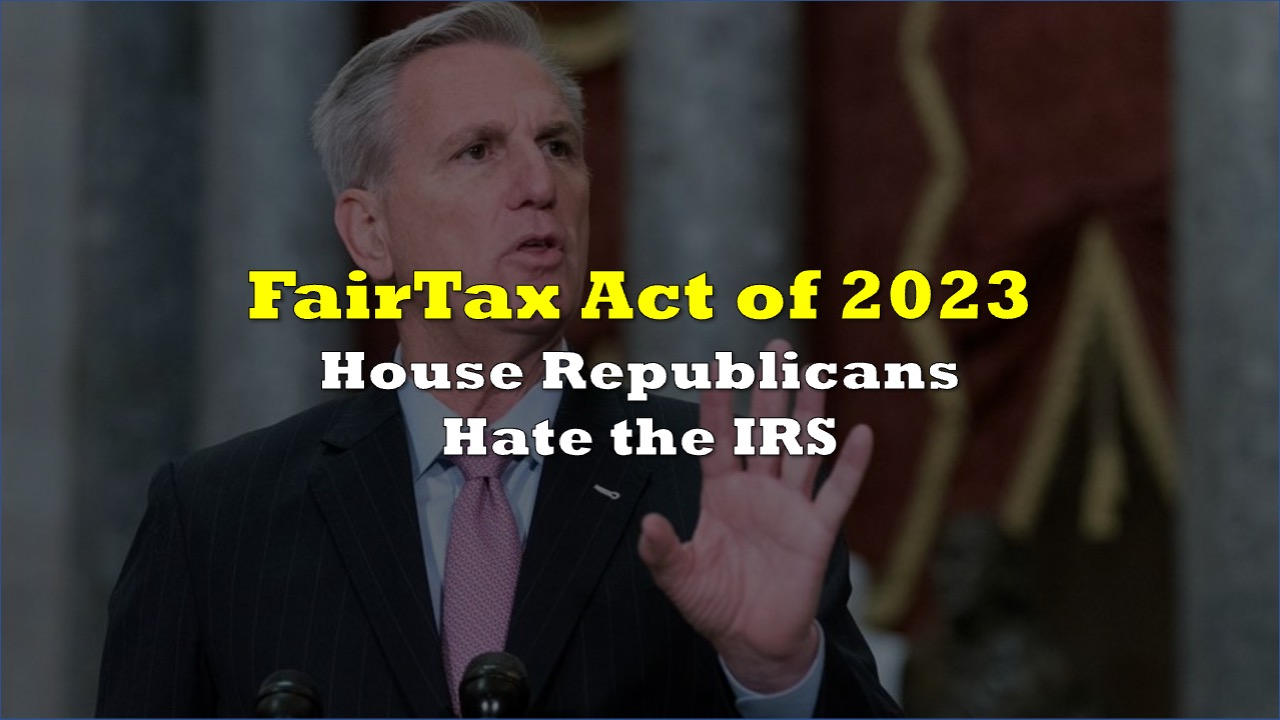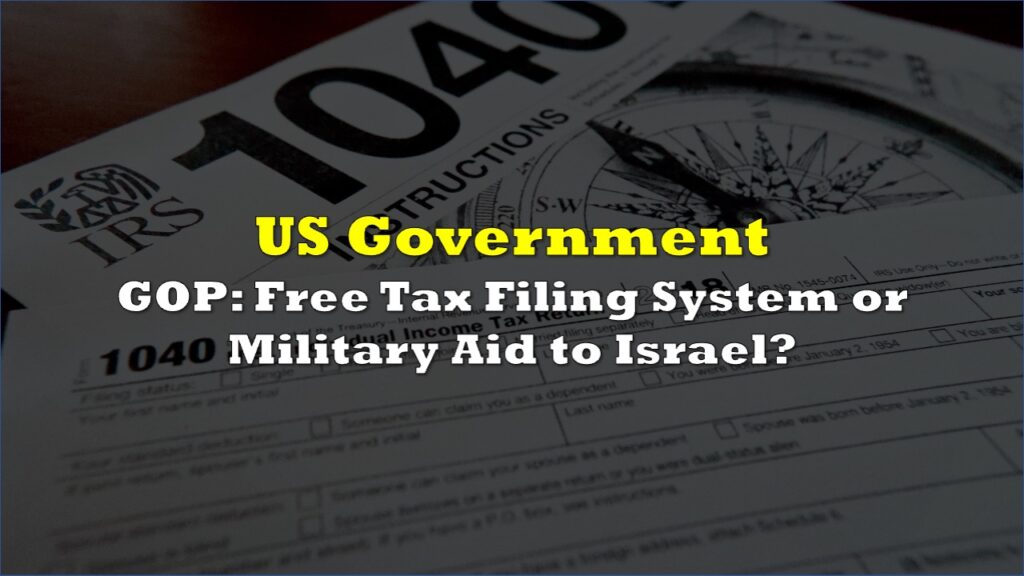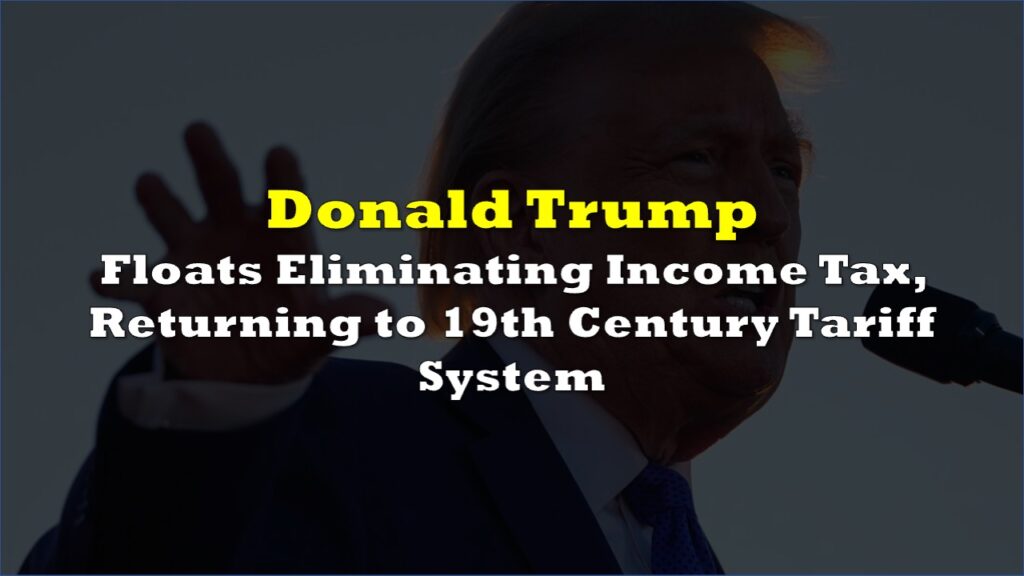Last week, House Republicans announced that they will hold a vote to abolish the Internal Revenue Service (IRS).
This would be the House Republican’s second IRS-targeted bill since the chaos of electing House Speaker Kevin McCarthy earlier in the month. Reports say that holding a vote for this cause is part of the many concessions that McCarthy agreed to give his dissenters in the Freedom Caucus.
Introduced by Georgia Representative Earl “Buddy” Carter, the FairTax Act of 2023 aims to overhaul the US tax code, and replace income tax with a “simplified tax code” that puts national sales tax on everything that the United States buys and consumes apart from used property.
The bill’s proponents’ definition of “simplifying” rests mostly on how there will no longer be a need for annual tax returns, and the notion that with just one rate and no more deductions on income, the exercise of raising money for the government would be more efficient.
But many argue that the proposed overhaul will benefit only the rich and hurt the poor. The poor would bring home more of their income but will need to shell out more for everything else, including their most basic needs. While the rich could actually enjoy significant net tax cuts.
Moreover, abolishing the IRS, which is the heart and center of the bullseye of the bill, is represented as “eliminating” the need for such a federal agency. But, the enactment of FairTax would require the creation of a similar agency that would be in charge of reviewing and adjudicating which purchases should qualify.
This implies that there should be some federal apparatus in charge of collecting trillions of dollars in sales taxes. Which, you know, sounds almost exactly like what something like the IRS is already doing. It’s not as simple as it sounds, too, because there are different rules and exemptions across the US’ 50 states, making the collection process potentially more complex and prone to failure.
There’s also the problem of the actual tax rate. The bill says it’s 23%, meaning if something costs $77, the sales tax is $23 because gross payment is defined by the bill to include the tax, which makes it much more confusing, and actually disingenuous.
Analysts compute it to be actually around 30%. If you buy something that’s worth $100, the sales tax is $30, and you will be not costing up the item you’re buying to $130 to pay 23%. Some are also saying that the amount could also be amended to cost higher.
This isn’t the first time that a bill of this sort has been introduced in Congress. And, like the earlier bill to repeal the $80 million additional funding of the IRS, it’s unlikely that this measure would see the light of day at the Senate, much less see ink on the desk of President Joe Biden. But these moves are indicative of how far House Republicans are willing to go to be a stick in the bum of the IRS.
The next time you hear Republicans in Congress complain about increased IRS funding, remember that the richest 1 percent of Americans evade $163 billion in taxes each year. That’s who the GOP is protecting.
— Robert Reich (@RBReich) January 10, 2023
Just two weeks ago, many House Republicans expressed anger over how six years of former President Donald Trump’s tax returns were released by the Democratic members of the House Ways and Means Committee.
Additionally, the IRS’ collection this season will also help determine how long US Treasury Secretary Janet Yellen will be able to keep the country from default risk.
Information for this story was found via Forbes, Fox News, CNN, CNBC, and the sources and the companies mentioned. The author has no securities or affiliations related to this organization. Views expressed within are solely that of the author. Not a recommendation to buy or sell. Always do additional research and consult a professional before purchasing a security. The author holds no licenses.










5 Responses
As for the stupid argument that 23% , inclusive is some how deceptive, Then why is the author not complaining about the inclusive manor that the IRS currently uses? Yes the tax will be 30% exclusive and 23% inclusive but that is the same system that is used now. Calculate what the government left you after tax (what you actually take hoe and can spend) and find out what percentage you paid on that left over and you may be shocked. If you calculate the income tax on your net ( what you are actually paid) instead of your gross, you may find that you pay over 30% ! With FairTax, you get your pay check with NO Federal withholding. Then you ONLY pay tax on items that some one else has not already paid tax on. A consumption tax. Not a sales tax. I have yet to see an argument against the FairTax that is not a lie, or misunderstanding. When you understand it, you will demand it!
Spending is a separate, unrelated issue!
While you are looking at the rich avoiding taxes with deductions, (legally) also look at who pays most of the income taxes. if you don’t have an income, you are not paying income tax. The top 25% of earners pay 89% of the revenue from income taxes. Then of course this author ignores the fact that with H.R.25 , the poor can actually end up with a negative tax. That is because the FairTax is NOT a Sales tax but a consumption tax. If you only buy previously taxed items, you will pay no tax at all. On top of that, every registered tax payer will get a prebate which allows one to spend up to the poverty level, ( Not determined by the tax code ) and pay no tax up to that amount. So the statement that the poor will pay more is FALSE! The more NEW goods and services you buy, the more you will pay. Consider that NOW every employed individual pay tax on EVERY item or service they buy, since the tax is taken (stolen) before they even see their money. That ends with the FairTax. A consumption tax does not tax interest on savings.
80 billion over 10 years not 80 million for 87000 more irs agents. The US would do well if they had a 10% flat tax with cheques going to low income people just as low income Canadians get gst cheques, combined with a small capital gains tax on profit over 100k/yr and hst tax nationwide of perhaps 5%….while keeping spending to a fixed %of gdp with a path to balance
The current system started as a Flat tax! It was originally the same argument. We will only tax the rich. With the FairTax there is no need to keep track of how much you earn, no need for April 15, No need for an employee tax department in EVERY business. FairTax IS the answer. When you understand it you will demand it.